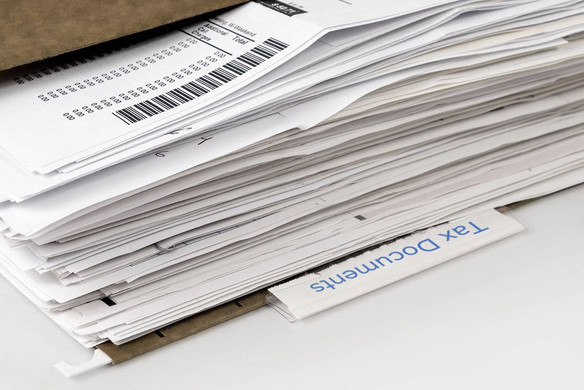Table of contents
So you’ve started a business and keep seeing references to EIN, but you aren’t sure what it is. Here’s an overview of what an EIN is, what it’s used for, and how you can get one of your own.
Employer Identification Number:Everything you need to know
An Employer Identification Number (EIN) — also known as a federal Tax ID number or a federal Identification Number — is a unique, nine-digit number issued to businesses by the IRS for tax ID purposes. An EIN is like a Social Security number for a business.
What type of business needs an Employer Identification Number?
An EIN acts as a national identifier for a business. Any business that hires employees needs an EIN. Most businesses, including corporations, partnerships, and even small business entities without employees, have one. Learn more about who needs an EIN.
Simply put, any of the following business entities requires an EIN:
- Limited liability corporation (LLC)
- Multi-member LLC
- Single-member LLC
- Nonprofit organization
For more details on business entities and EIN requirements, check out this overview from the IRS.
Why do you need an EIN?
The IRS uses EINs to identify businesses for tax purposes. Businesses use their EINs to open business bank accounts, to apply for business licenses, and to establish accounts with vendors. Some types of business that do not need an EIN, such as sole proprietors, choose to get the ID from the IRS anyway. Some independent contractors use an EIN rather than their Social Security number to safeguard against identity theft. Sole proprietors also sometimes use an EIN to show their status as an independent contractor rather than an employee.
Learn more about how to register your business.
Learn how to formalize and grow your business. Check out the Employer Launchpad.
Who or what is the responsible party?
When applying for an EIN, the responsible party is the person or entity in charge of the business. On the EIN application, the responsible party enters their name and a taxpayer ID number, such as their Social Security number (SSN) or their Individual Taxpayer Identification Number (ITIN).
Learn more about responsible parties.
What is the difference between a federal EIN and a state Tax ID Number?
EINs are issued by the IRS on a federal level. Businesses that sell taxable goods or have employees or property in a certain states may also need a state Tax ID Number (TIN). This TIN is used to report income sales tax, withholding tax, and unemployment insurance tax.
A business may need one or more state TINs. Businesses that operate in multiple states may need an TIN for each state in which they do business. These are generally issued by various state agencies where the business operates. Some state agencies may allow businesses to report various taxes with one state TIN, depending on how taxes are administered in that state. While a business can have multiple state TINs, a business generally has one federal EIN.
Tell me about EIN versus TIN
An EIN is a type of TIN that the IRS uses to track businesses. A TIN includes different kinds of ID Numbers that the IRS uses to track taxpayers. The IRS issues EINs and TINs.
How do I apply for an EIN?
The easiest way to get an EIN for your business is to apply for free at IRS.gov using the EIN Assistant. If you don’t want to apply for your EIN online, you can download Form SS-4 and send it to the IRS by mail or fax. There are also private companies that help businesses apply for an EIN for a fee.
What is the EIN form?
The EIN form on the IRS website must be completed in one sitting. The session expires after 15 minutes of inactivity for security reasons. Make sure you have all the required information about your business before you start. You need to supply information on your business’s legal structure, why you’re applying for an EIN, the responsible party, an address, etc.
How do I verify my EIN?
You can verify your EIN by calling the IRS Business & Specialty Tax Line, Monday through Friday, from 7 a.m. to 7 p.m. local time, at (800) 829-4933. Note that for security reasons, the IRS can only share your business’s EIN with an authorized person, such as the sole proprietor, a corporate officer, a partner in a partnership, or other similar roles.
How do I look up my EIN?
What happens if you lose your EIN or forget it? If you applied for an EIN for your business but can’t find the number, there are several ways to look it up. If you used your EIN to open a business bank account, reach out to your bank to retrieve your EIN. Similarly, if you filed a past tax return for your business, you can find your EIN by looking up your tax return.
Resources for EIN Lookup
There are several resources you can use to conduct an EIN lookup:
- Call the IRS at 800-829-4933 and select EIN from the list of options. Once you connect with an IRS employee, they can assist with an EIN lookup by asking you specific disclosure and security questions to ensure you are authorized to have the number.
- Check your state business registry. Most states have an online business registry or secretary of state website, where you can search for business entities.You can generally conduct an EIN lookup by searching for the business’s or the owner’s name. Some states will provide business details, including EINs, in their online registries. If EINs are not available online in your state, you may have to contact your state’s business registration office directly.
- Use a third-party service to look up your EIN. Some reputable business services or platforms offer EIN lookups, including LegalZoom, Incfile, Rocket Lawyer, and ZenBusiness. Most third-party services will charge you a fee for EIN lookups.
If you’ve lost your EIN, it’s important that you retrieve it. There are many instances where you will need to provide your EIN in the conduct of business, including:
- To file tax returns
- To set up business bank accounts
- To apply for business licenses or permits
- To hire employees and set up payroll
- To apply for a business loan
Will I ever have to change EINs?
Yes, businesses typically need a new EIN when they’ve had a change of ownership or structural change. The following chart covers when different types of businesses need a new EIN and when they don’t:
Sole proprietorship
| Situation | New EIN needed? |
|---|---|
| Bankruptcy | Yes |
| Business incorporates | Yes |
| Take in partners and function as a partnership | Yes |
| Acquire existing business (through purchase or inheritance) operated as a sole proprietorship | Yes |
| Business changes name | No |
| Move to a new location | No |
| Business adds a new location | No |
| Operate multiple businesses | No |
Corporation
| Situation | New EIN needed? |
|---|---|
| New charter from Secretary of State | Yes |
| Subsidiary of a corporation using the parent company’s EIN | Yes |
| Business became a subsidiary of a corporation | Yes |
| Change to a partnership or became a sole proprietorship | Yes |
| New corporation forms after a statutory merger | Yes |
| Business is a division of a corporation | No |
| Corporation uses existing EIN after a corporate merger | No |
| Bankruptcy | No |
| Change to corporation’s name or location | No |
| Change in tax status to an S corporation | No |
| Reorganization that only changes the identity or place | No |
| State-level conversion where business’s structure stays the same | No |
Partnership
| Situation | New EIN needed? |
|---|---|
| Incorporation | Yes |
| Taken over by a partner and operated as a sole proprietorship | Yes |
| Partnership ends and a new one begins | Yes |
| Bankruptcy | No |
| Business changes name | No |
| Move to new location | No |
| Add a new location | No |
| New partnership created from ending a partnership [IRC section 708(b)(1)(B)] | No |
| Half or more of a business’s ownership changes hand in a 12-month period | No |
The IRS has more information about when you need a new EIN.
![]()











